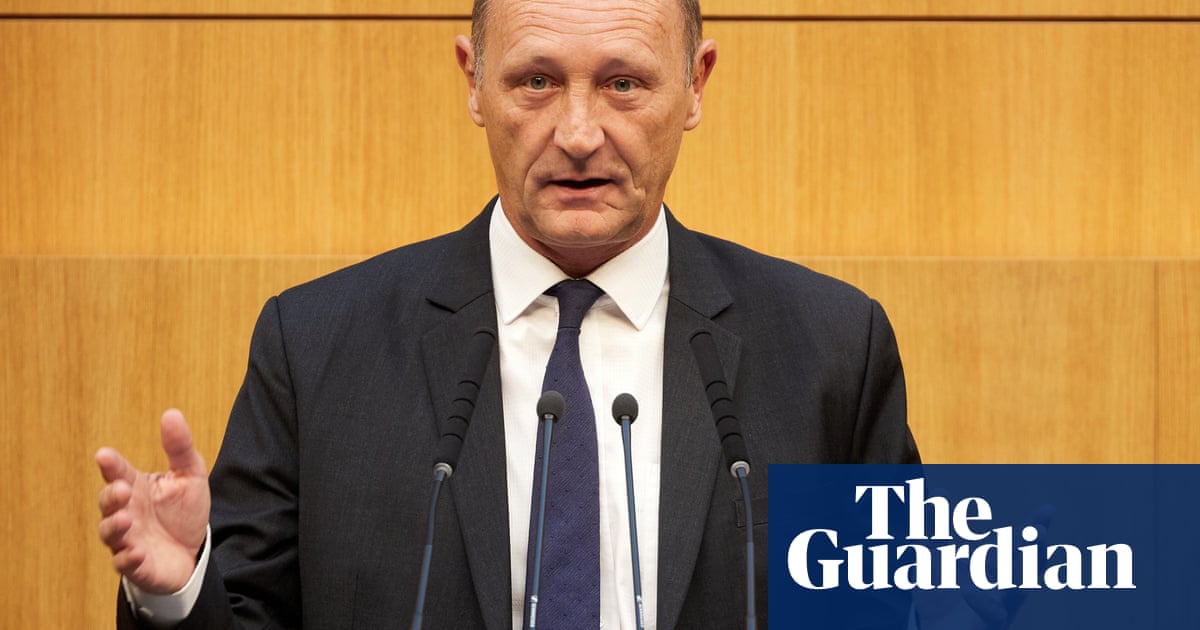Austrians have poured scorn on far-right MPs for topping the list of highest earners in the country’s parliament, accusing the purported champions of the working class of hypocrisy over their lucrative side hustles.
A report based on mandatory income declarations for 2024 revealed this week that MPs from the anti-immigration Freedom party (FPÖ),which came in first in the September general election, to be cashing in most with supplementary earnings.
The data shows that seven FPÖ MPs were paid more than €12,000 (£10,400) a month, primarily as notaries, lawyers and business executives, on top of their parliamentary salary of about €10,000.
Far-right MPs had an average of 1.9 additional sources of pay, surpassing all of their colleagues in parliament.
“Do they have enough time for such high-paying side jobs? How do they manage? As someone who in an average-paying job always tries to give 100%, and is suffering from budget cuts, I feel mucked around,” one reader wrote on Facebook under an article about the report.
“Preaching water and drinking wine! Sure, the party of the ‘average Joe’,” said an Instagram user.
“Their day must have more than 24 hours!” wrote another.
Fellow politicians seized on the report to attack the scandal-prone FPÖ, whichpolls show is supported by one in three Austrians.
“For a party whose business model is kicking off envy debates and presenting itself as the mouthpiece of the little guy and the opponent of the ‘system’, it’s fair to ask about credibility,” the general secretary of the co-ruling People’s party (ÖVP), Nico Marchetti, said in a statement.
Klaus Seltenheim of the Social Democrats (SPÖ), junior partners in government, said the report showed the “hypocrisy of the blue troops”, referring to the FPÖ’s party colour.
The ÖVP agreed Austria’s first three-way coalitionwith two smaller parties in February to block the anti-Muslim, pro-Kremlin FPÖ from power despite it winning most votes in the national election. It was the first time since the Nazi era that the far right had come out on top.
The biggest earner was Axel Kassegger of the FPÖ, who had nine paid engagements beyond his duties as an MP including management functions at two firms, membership of the supervisory board of the regional power company Energie Steiermark as well as speaking and consulting gigs.
Despite the finger pointing from other parties, most of them were also represented in the top category of the parliamentary rich list, which includes four MPs from the conservative ÖVP, three each from the pro-business New Austria and Liberal Forum (NEOS) and Greens and two Social Democrats.
The FPÖ called the criticism a distraction from the faults of the government, “which is responsible for record debt, high inflation, rising unemployment and three consecutive years of recession”. It insisted all of its MPs’ additional earnings were above board.
Sign up toThis is Europe
The most pressing stories and debates for Europeans – from identity to economics to the environment
after newsletter promotion
The party mounted a fierce campaign before the September poll, blaming the governing partiesfor the mounting cost of living, tepid economic growth and the impact of strict Covid measures, which it said had hurt average Austrians.
The former FPÖ leader Heinz-Christian Strache has faced accusations this year offinancing a luxurious lifestyle with public funds accorded to his party. Media reports said Strache had illicitly put more than €1m for holidays, a wedding planner, private parties, home renovations and other personal indulgences on expenses. Strache has denied the allegations.
The affair has taken on greater political dimensions because it allegedly occurred when the current FPÖ chief, Herbert Kickl, was the party’s general secretary and responsible for overseeing bookkeeping.
The scrutiny of FPÖ lawmakers’ earnings comes as it also emerged this week that the co-leaders of Germany’s far-rightAlternative für Deutschland, Alice Weidel and Tino Chrupalla, reportedly got the party to sign off last month on doubling their allowances.
Beyond the nearly €12,000 they earn monthly as MPs, the parliamentary group granted them an allowance of another €12,000, up from €6,000 previously, the news outlet T-Online reported in an article that the party later confirmed.
Weidel and Chrupalla are also entitled, like all German lawmakers, to about €5,300 in expenses linked to carrying out their duties such as renting an office in their constituency, taxis and hotel costs.
The news magazine Der Spiegel reported that the AfD, Germany’s biggest opposition party, had justified the boost citing the fact that the parliamentary group had doubled in size after the February general election and had previously paid smaller allowances than other parties.
